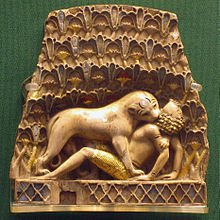History of Egyptian civilization....

BC 4000 first empire originated in Egypt.
Egypt's ancient name is Egypt.
Egypt is located on the coast of the Mediterranean, surrounded by the continents of Asia, Africa and Europe. In the north, the Mediterranean Sea, the Red Sea in the east, the Sahara Desert on the west, Sudan and other African countries in the south.
The area is about 4 million square miles.
North Egypt was called Lower Egypt
South Egypt was called Upper Egypt
5000 BC -300 A state emerged in the Nile basin
Pre-dynastic era in the history of ancient Egypt
Egypt began to make significant contributions to ancient civilization.
3200 BC began the rule of the first dynasty
Egyptian Historical Age Begins
At the same time, lower and upper Egyptians together with Narmah or Menes were once the first ruler of Egypt and priests. He also gained the status of the first pharaoh.
From then on, under the pharaohs, Egypt was able to make a significant contribution after the development of ancient civilization.
The Egyptian civilization lasted for more than 2,500 years.
5000 BC The uninterrupted and long history of ancient Egypt began. Especially in the Neolithic era.
The beginnings of the Egyptian civilization are led by Menes,
For nearly three thousand years it was brilliant.
Before 10th century BC, a barbaric tribe in Libya occupied the throne of the pharaohs.
BC 670-662 Assyria dominated Egypt.
When Egypt captured 525 BC, the sun was set in ancient Egyptian civilization.
In the pre-dynastic period of 3200 BC, several small towns of Egypt were divided into nations. These were called nao. Egypt's first king or Pharaoh (Menes or Narnar) united the whole of Egypt to form a state.
The capital was in Memphis in south Egypt
Since then the united state and the rise of the dynasty in Egypt
The word 'pharaoh' was born from the Egyptian 'pare-o'. The pharaohs were very powerful. They considered themselves to be descendants of the sun god. The pharaoh verse was hereditary. That is, the son of the pharaoh would have been inherited.
Based on the profession, people of Egyptian society can be divided into several classes. For example: royal family, priest, elite, scribe, businessman, artist and farmer and landlord class.
Egypt's economy was largely agrarian
Notable among the crops produced are wheat, barley, cotton, onion, pitch etc.
Egypt was also a pioneer in trade and commerce. Used in Egypt, wheat, lilen and clay pot were exported to the island of Crete, Finland, Palestine and Syria.
Egyptians from different countries imported gold, silver, ivory, wood etc.
Egypt's blue river originates from Lake Victoria in Africa
From there, the river has come into the Mediterranean through Egypt.
Herodotus correctly says: Egypt is the donation of the Nile River.
Without the Nile, Egypt would have become a desert.
In the ancient times, the Nile flooded every year. After the water moved, the soil on the two banks of the river would become fertile. Various types of crops grown in accumulated silt.
Egypt's contribution to civilization:
There is no way to deny the contribution of the Egyptians to ancient civilization. Their religious thoughts, art, sculpture, writing methods, and the invention of paper is the science of science-all of them are rich in their contributions.
The characteristics of the Egyptians are that there is no direction in their lives that is not influenced by religious thoughts and beliefs.
Egyptian faith:
Probably like any ancient nation of Egyptians, such religious rites were not influenced by the rule of law in all areas of life. Due to this, many concepts of human civilization, customs and rituals were born in ancient Egypt.
They worshiped idols, worshiped idols, and worshiped animals.
Many times their faith changed.
Egyptians thought that the sun god Ray 'or' Aman ray 'and natural energy, Osiris, the grains of the Nile, combined the whole world. But the importance of the sun rays 'Ray' in their life was much more important.
The Egyptians thought that the dead would be alive again.
Because of this, they kept mummy for keeping the body fresh.
From this thought, they created pyramids to protect Mammy.
The Pharaohs ruled the country as God's representative.
They were also appointed by the chief priest and other priests.